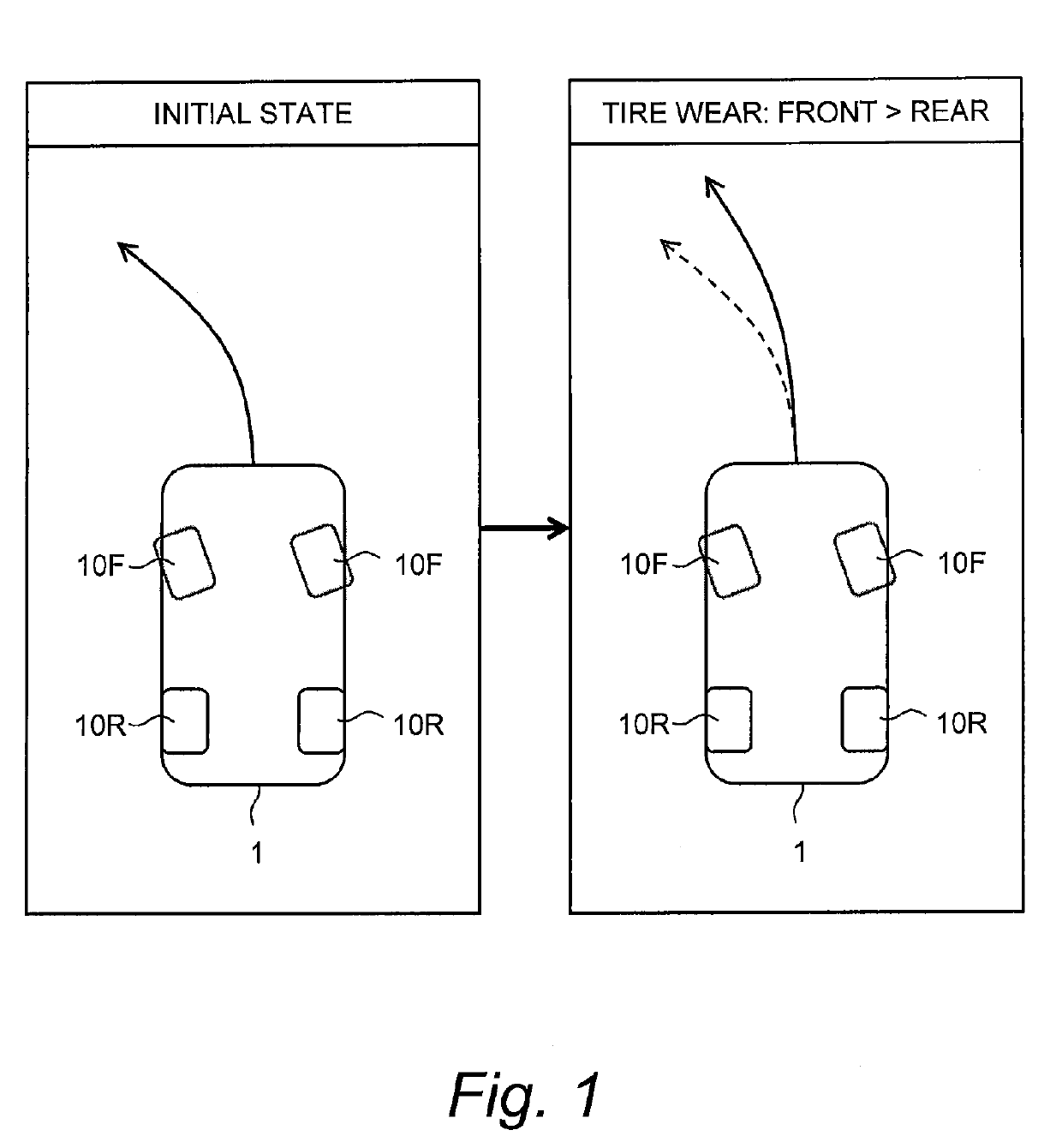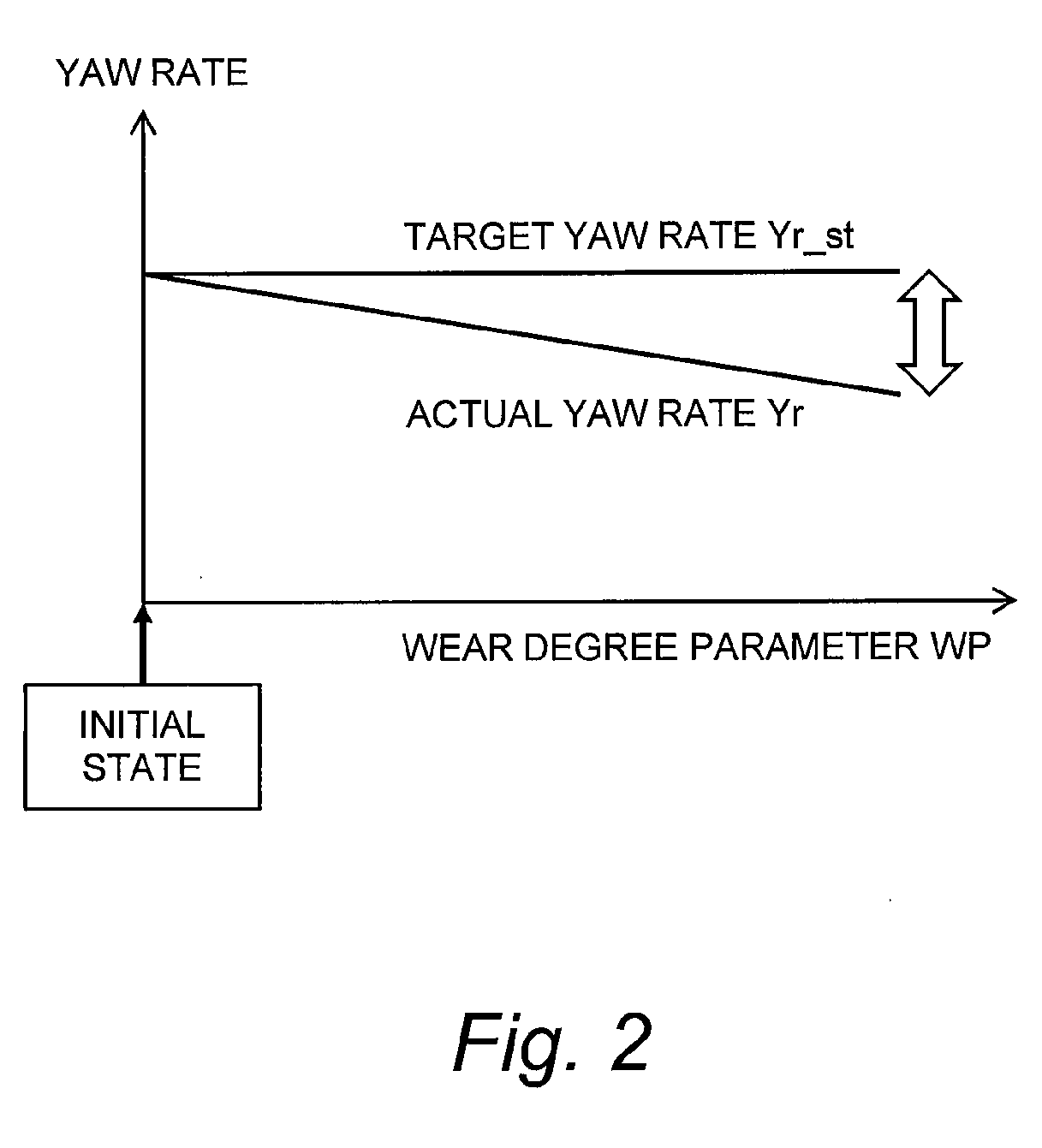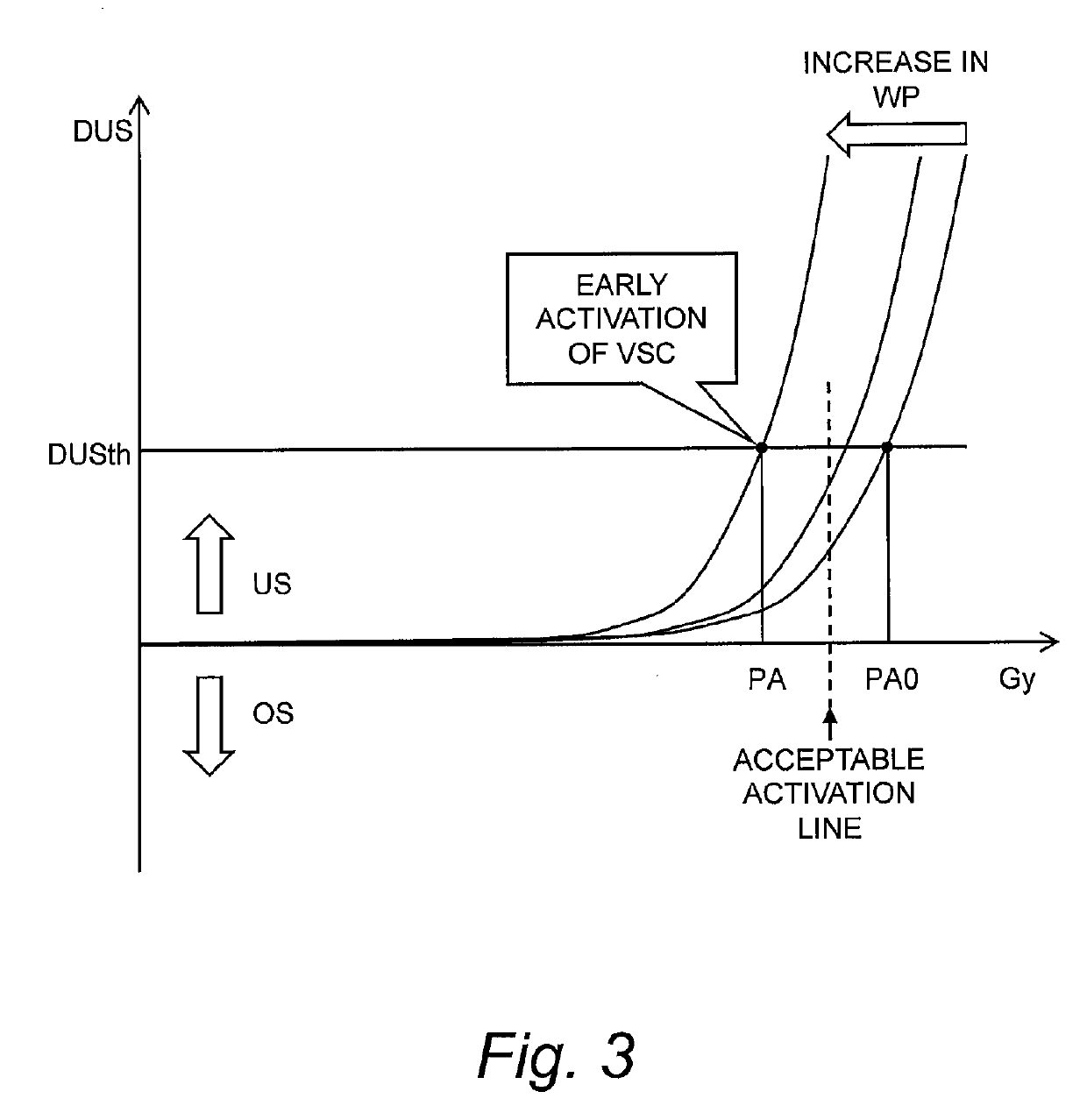Vehicle stability control device
a technology for vehicle stability and control device, which is applied in the direction of control device, vehicle components, vehicle condition input parameters, etc., can solve the problems of reducing confidence in vehicle stability control, unnecessarily activating vehicle stability control, and possibly promoting rear tire wear, so as to reduce the difference in wear degree between the front tire and the rear tire, and promote the effect of rear tire wear
- Summary
- Abstract
- Description
- Claims
- Application Information
AI Technical Summary
Benefits of technology
Problems solved by technology
Method used
Image
Examples
first example
5-1. First Example
[0111]In a first example, the wear degree parameter WP is the front wear degree Wf of the front tire 10F. In the case where only the front wear degree Wf is used, an effect of reduction in computation load of the control device 110 can be obtained.
[0112]FIG. 13 is a flow chart showing the first example. The processing flow shown in FIG. 13 is repeatedly executed every certain cycle.
[0113]In the processing flow described below, a parameter F is a status flag indicating whether or not any tire coefficient calculated after initialization exists. When the status flag F is “0”, there is no tire coefficient calculated after the initialization. When the status flag F is “1”, there is any tire coefficient calculated after the initialization. A previous status flag FP indicates a previous value of the status flag F. In the present example, both the status flag F and the previous status flag FP are initialized to “0” in an assembly line of the vehicle 1. Moreover, at timings...
second example
5-2. Second Example
[0126]In a second example, the wear degree parameter WP is the difference (Wf−Wr) between the front wear degree Wf and the rear wear degree Wr. By using both the front wear degree Wf and the rear wear degree Wr, it is possible to more accurately consider the influence of the tire wear.
[0127]FIG. 14 is a flow chart showing the second example. It should be noted that the same Step number is given to the same or similar processing as in the first example, and an overlapping description will be omitted as appropriate.
[0128]In Step S100, the control device 110 calculates the front tire coefficient Kf and the rear tire coefficient Kr and retains them in the memory device 120. More specifically, in Step S110, the control device 110 calculates the vehicle acceleration A(T), the slip ratio Sf(T) of the front tire 10F, and the slip ratio Sr(T) of the rear tire 10R. In Step S120, the control device 110 determines whether or not both the slip ratio Sf(T) and the slip ratio Sr...
third example
5-3. Third Example
[0132]In a third example, the wear degree is calculated based on an “estimated tire radius Ra” instead of the above-described “tire coefficient”. The estimated tire radius Ra is an estimated value of a tire radius and can be obtained, for example, by a method disclosed in the above-mentioned Patent Literature 2 (Japanese Laid-Open Patent Publication No. 2008-247126).
[0133]FIG. 15 is a flow chart showing the third example. It should be noted that the same Step number is given to the same or similar processing as in the first example, and an overlapping description will be omitted as appropriate.
[0134]In Step S100, the control device 110 obtains the estimated tire radius Ra and retains it in the memory device 120. More specifically, in Step S180, the control device 110 determines whether or not the estimation processing is permitted. When the estimation processing is not permitted (Step S180; No), the processing in the current cycle ends. When the estimation processi...
PUM
 Login to View More
Login to View More Abstract
Description
Claims
Application Information
 Login to View More
Login to View More - R&D
- Intellectual Property
- Life Sciences
- Materials
- Tech Scout
- Unparalleled Data Quality
- Higher Quality Content
- 60% Fewer Hallucinations
Browse by: Latest US Patents, China's latest patents, Technical Efficacy Thesaurus, Application Domain, Technology Topic, Popular Technical Reports.
© 2025 PatSnap. All rights reserved.Legal|Privacy policy|Modern Slavery Act Transparency Statement|Sitemap|About US| Contact US: help@patsnap.com



